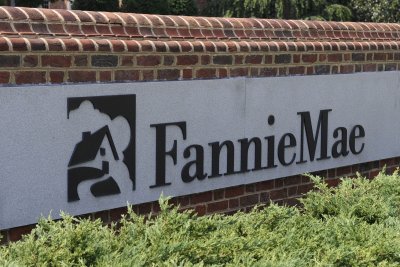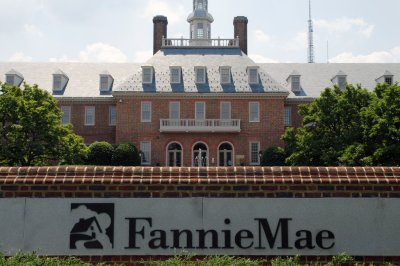Donor, now a regulator, leads effort to accuse Trump foes of fraud
WASHINGTON — Behind a White House effort to saddle President Trump’s political foes with accusations of mortgage fraud is a 37-year-old home construction executive with a deep partisan past.
Bill Pulte, a Florida native, rose in Trump’s orbit toward the end of his first term. After courting Trump for years on social media and through generous donations, he now runs the Federal Housing Finance Agency — a perch that has allowed him to target prominent figures who have crossed the president.
In the last five months, Pulte has referred three claims of mortgage fraud against Trump’s foes to the Justice Department, leveled against Letitia James, the attorney general of New York; Adam Schiff, the Democratic senator from California; and this week, Lisa Cook, a governor on the board of the Federal Reserve.
Each has denied wrongdoing. Trump announced on Monday night that he was moving to fire Cook.
It is an unusual role for a director of the FHFA, which regulates Fannie Mae — the nation’s largest company by assets — and Freddie Mac. The two mortgage financing organizations, which support nearly half of the U.S. residential mortgage market, were taken over by the FHFA during the 2008 economic crisis.
The grandson of one of Michigan’s wealthiest and most prolific homebuilders, Pulte made a name for himself on Twitter in 2019 with public cash giveaways to individuals in need. He dubbed himself the “inventor of Twitter philanthropy,” vowing to give two cars away in exchange for a Trump retweet that year, which he received. He subsequently built a following of over 3 million.
Records show Pulte donated substantially to Trump, the Republican National Committee and related super PACs leading up to the 2024 election.
Pulte’s letters to Atty. Gen. Pam Bondi have been tightly and cautiously written. But his social media posts, celebrating the targeted attacks, have not.
“Trump becomes the first president ever to remove a sitting Federal Reserve governor,” he wrote on X, between retweets of right-wing commentators praising the move. “Mortgage fraud can carry up to 30 years in prison.”
In another post on X, quoting a CNN headline, Pulte wrote that Trump’s firing of Cook was “escalating his battle against the central bank” — seeming to acknowledge that targeting Cook was motivated by Trump’s ongoing grievances with Fed leadership.
Cook’s firing is legally dubious, and her attorney, Abbe Lowell, said in a statement that Cook plans on suing the administration while continuing to perform her duties for the Fed. Lowell also represents James in her defense against the Justice Department case.
While the Supreme Court ruled in May that Trump may fire individuals from independent federal agencies, the justices singled out the Fed as an exception, calling it a “uniquely structured, quasi-private entity.” The Federal Reserve Act of 1913 states that the president may fire a member of its leadership only “for cause.”
But cause has not been definitively established to fire Cook, with Pulte writing in his letter to Bondi that the Fed governor had only “potentially” committed mortgage fraud, accusing her of falsifying bank documents and property records to acquire more favorable loan terms.
Pulte has accused Cook of listing two homes — in Ann Arbor, Mich., and in Atlanta — as her primary addresses within two weeks of purchasing them through financing. Cook said she would “take any questions about my financial history seriously” and was “gathering the accurate information to answer any legitimate questions and provide the facts.”
Pulte’s other accusations, against James and Schiff, have been similarly superficial, publicly accusing individuals of potential criminality before a full, independent investigation can take place.
And whether those investigations will be impartial is far from clear. Earlier this month, Bondi appointed Ed Martin, a conspiracy theorist who supported the “Stop the Steal” movement after Joe Biden’s election victory over Trump in 2020, as a special prosecutor to investigate the James and Schiff cases.
Pulte accused James — who successfully accused Trump of financial fraud in a civil suit last year — of falsifying bank statements and property records to secure more favorable loan terms for homes in Virginia and New York. He made similar claims weeks later about Schiff, who maintains residences in California and the suburbs of Washington, D.C.
Schiff, who led a House impeachment of Trump during the president’s first term and has remained one of his most vocal and forceful political adversaries since joining the Senate, dismissed the president’s claims as a “baseless attempt at political retribution.”
A spokesperson for Schiff said he has always been transparent about owning two homes, in part to be able to raise his children near him in Washington, and has always followed the law — and advice from House counsel — in arranging his mortgages.
In making his claims, Trump cited an investigation by the Fannie Mae “Financial Crimes Division” as his source.
A memorandum reviewed by The Times from Fannie Mae investigators to Pulte does not accuse Schiff of mortgage fraud. It noted that investigators had been asked by the FHFA inspector general’s office for loan files and “any related investigative or quality control documentation” for Schiff’s homes.
Investigators said they found that Schiff at various points identified both his home in Potomac, Md., and a Burbank unit he also owns as his primary residence. As a result, they concluded that Schiff and his wife, Eve, “engaged in a sustained pattern of possible occupancy misrepresentation” on their home loans between 2009 and 2020.
The investigators did not say they had concluded that a crime had been committed, nor did they mention the word “fraud” in the memo.



